|
Code:
77774
|
Iran’s Sanctions Lift, and the West Goes to Talk Business

TIN news: Airbus said Monday it was in talks with Iran toward the sale of dozens of new commercial aircraft — part of a number of international business deals likely to flow toward Iran since it agreed to curtail its nuclear ambitions.
It represents the first wave of a broad rethinking of the Iranian market by Western businesses after they were banned from doing business there for nearly two decades. The nuclear deal led to the lifting of crippling economic sanctions on Iran that have left Tehran with a long shopping list, from planes to cars to oil-field equipment.
Iran’s transportation minister, Abbas Akhoondi, announced the Airbusdevelopments at an aviation event in Tehran, saying that the country had been in talks for nearly a year to buy planes ranging from 100-seat turboprops to the 555-seat twin-deck Airbus A380 superjumbo. However, “there was no way to pay for them because of banking sanctions,” Mr. Akhoondi said, according to state news media.
Companies have long been anticipating returning to Iran, with its 81 million, mostly young consumers who have already shown an avid taste for smuggled Western cigarettes and Apple electronics. Bootleg versions of Western restaurants abound in Iranian cities, from “Pizza Hat” to “Mash Donald’s.”
“There is a huge demand for commercial vehicles, especially trucks,” said Wolfgang Bernhard, the head of Daimler’s truck division. Last week Daimler said it had signed letters of intent with two Iranian partners, Khodro Diesel and Mammut Group, to return to the Iranian truck market it had left in 2010.
At the same time, plenty of investors remain wary at a time when the Middle East is in turmoil and the price of oil — one of Iran’s most lucrative exports — has tumbled to levels not seen in years.
Credit also remains a serious obstacle as major Western banks are waiting for clarity from the United States Treasury regarding the “state sponsor of terrorism” label. The label means that no money intended for Iran can move through American banks, something that is all but impossible to avoid in many modern transactions.
For its part, Iran is promoting an investment law that promises tax breaks to foreign investors of up to 100 percent, the right to send revenue out of the country and protection of investments in case laws are changed. Still, some legal experts point out that the law seems to conflict with the constitution at some points.
Conflicting views among Iran’s political factions could also endanger investments, particularly involving products perceived as symbols of Western consumption. A newly opened restaurant calling itself Kentucky Fried Chicken (most likely a knockoff of its American counterpart) was closed in December by the morality police. “Investors will likely learn the pitfalls of investing in a country with entrenched vested interests, from the clergy to the Revolutionary Guard, and surprising linkages between banks and companies that lead to some investments turning sour,” the note said.
On Monday Iran’s president, Hassan Rouhani, was scheduled to depart for Italy with a trade delegation. There he is widely expected to reach a multimillion-dollar pipeline agreement with the Italian company Saipem. Saipem is one of many European service companies that Iran hopes can help resuscitate aging Iranian oil and gas fields whose production has declined in recent years.
Iran’s economy has suffered as sanctions prevented the sale of its oil on the international market. It barely took a week after the sanctions’ lifting, though, for local oil producers to move back into the global market. Iranian oil officials say they will increase crude production by 500,000 barrels a day immediately, and reach one million additional barrels by the end of the year, effectively erasing the decline over the past four years.
“The Iranians are going to try and come back with a vengeance because they want to show they were unbroken by the international sanctions,” said Helima Croft, chief commodities strategist at RBC Capital Markets, a division of Royal Bank of Canada.
Iran’s oil and gas fields are in dire need of infrastructure upgrades. In total, industry analysts say, Iran could spend up to $100 billion rebuilding itsnatural gas pipelines.
Executives in the energy services business in the United States remain cautious.
“It’s not investable yet, not with these low oil prices,” said Dragan Vuckovic, president of Mediterranean International, a Houston company active in the Middle East. Oil prices have collapsed in recent months to some of their lowest levels in years, falling briefly below $30 a barrel before bouncing back slightly.
In addition, Mr. Vuckovic expressed concern about future United States policy toward Iran in light of Republican criticism of President Obama’s nuclear deal with Iran. “Iran is O.K. under Obama, but what happens after him, we don’t know,” Mr. Vuckovic said.
Before Mr. Rouhani’s departure Monday for Italy, he said that two French automakers were also poised to secure new contracts, PSA Peugeot Citroën and Renault, according to Iranian state news media. Officials at Peugeot and Renault did not immediately respond to requests for comment.
The two largest American automakers, General Motors and Ford, said on Monday that the revised sanctions did not yet allow them to do business in Iran.
Aircraft offer a stark example of Iran’s need for foreign goods. The sanctions left Iran with one of the world’s oldest and most accident-pronefleets.
Iran Air operates exclusively Western-built jets, consisting of around 40 planes with an average age of 25 years, including several Boeing 747s as well as models no longer in production, like the Airbus A300 and the Fokker 100.
Continue reading the main storyNews reports of the Airbus negotiations, citing Iranian officials, have indicated that the orders could include dozens of Airbus’s biggest-selling single-aisle A320 jets, as well as several A330 and A350 widebodies. The country’s flag carrier, Iran Air, is also interested in as many as eight A380s, the reports said, as well as around 40 regional turboprops built by ATR, a joint venture of Airbus and Finmeccanica of Italy.
The orders, which are likely to be partly financed with loans from European export-credit agencies, could be announced as early as this week in Paris during a visit by President Rouhani, Mr. Akhoondi said.
Airbus would not confirm that discussions with Iran were sufficiently advanced to lead to an order in coming days. “Although Iran clearly has a need for new aircraft, we conform strictly to all applicable international laws,” said Stefan Schaffrath, an Airbus spokesman in Toulouse, France.
In response to questions about interest in Iran on the part of Boeing, the American aircraft giant, a company spokesman said: “For now, we continue to assess the situation.”
Richard Aboulafia, an aviation analyst with Teal Group in Virginia, noted, “It’s in Iran’s interests to overstate its commercial potential.” Nevertheless, facing sluggish markets in places like Brazil, Russia and India, “the world’s aircraft manufacturers are eager for any kind of new growth story,” he said.
Until the United States and European governments provided sanctions relief last year, trade restrictions had prohibited the sale of spare parts for the dozens of creaking Western-made aircraft flown by Iranian carriers, forcing them either to turn to the black market or to resort to deception, concealing purchases through front companies.
Fatal air accidents have occurred with alarming frequency in Iran. Since the 1979 revolution, there have been 26 civilian plane crashes in the country, according to the Aviation Safety Network, claiming more than 900 lives.
With a full lifting of sanctions on aircraft sales, analysts estimate that Iran’s commercial fleet could expand rapidly to around 400 or 500 jets over the next five years, from around 150 planes today.
Russian businesses, themselves hard hit by sanctions, along with slumping oil prices at home, are eyeing Iran as well. Sukhoi, the plane maker better known for making the fighters and bombers now streaking over Syria, is in talks to sell Iranian airlines 100 planes before 2020, Dmitry Rogozin, a Russian deputy prime minister, said late last year. Russian oil services companies say they are ready to sell to Iran’s petroleum industry.
Russia also expects military sales to pick up. Mr. Rogozin said that Russia began to supply S-300 antiaircraft missile systems to Iran. “This contract is now executed and paid for,” he said.
It represents the first wave of a broad rethinking of the Iranian market by Western businesses after they were banned from doing business there for nearly two decades. The nuclear deal led to the lifting of crippling economic sanctions on Iran that have left Tehran with a long shopping list, from planes to cars to oil-field equipment.
Iran’s transportation minister, Abbas Akhoondi, announced the Airbusdevelopments at an aviation event in Tehran, saying that the country had been in talks for nearly a year to buy planes ranging from 100-seat turboprops to the 555-seat twin-deck Airbus A380 superjumbo. However, “there was no way to pay for them because of banking sanctions,” Mr. Akhoondi said, according to state news media.
Companies have long been anticipating returning to Iran, with its 81 million, mostly young consumers who have already shown an avid taste for smuggled Western cigarettes and Apple electronics. Bootleg versions of Western restaurants abound in Iranian cities, from “Pizza Hat” to “Mash Donald’s.”
“There is a huge demand for commercial vehicles, especially trucks,” said Wolfgang Bernhard, the head of Daimler’s truck division. Last week Daimler said it had signed letters of intent with two Iranian partners, Khodro Diesel and Mammut Group, to return to the Iranian truck market it had left in 2010.
At the same time, plenty of investors remain wary at a time when the Middle East is in turmoil and the price of oil — one of Iran’s most lucrative exports — has tumbled to levels not seen in years.
Credit also remains a serious obstacle as major Western banks are waiting for clarity from the United States Treasury regarding the “state sponsor of terrorism” label. The label means that no money intended for Iran can move through American banks, something that is all but impossible to avoid in many modern transactions.
Advertisement
Continue reading the main story
Conflicting views among Iran’s political factions could also endanger investments, particularly involving products perceived as symbols of Western consumption. A newly opened restaurant calling itself Kentucky Fried Chicken (most likely a knockoff of its American counterpart) was closed in December by the morality police. “Investors will likely learn the pitfalls of investing in a country with entrenched vested interests, from the clergy to the Revolutionary Guard, and surprising linkages between banks and companies that lead to some investments turning sour,” the note said.
On Monday Iran’s president, Hassan Rouhani, was scheduled to depart for Italy with a trade delegation. There he is widely expected to reach a multimillion-dollar pipeline agreement with the Italian company Saipem. Saipem is one of many European service companies that Iran hopes can help resuscitate aging Iranian oil and gas fields whose production has declined in recent years.
Iran’s economy has suffered as sanctions prevented the sale of its oil on the international market. It barely took a week after the sanctions’ lifting, though, for local oil producers to move back into the global market. Iranian oil officials say they will increase crude production by 500,000 barrels a day immediately, and reach one million additional barrels by the end of the year, effectively erasing the decline over the past four years.
“The Iranians are going to try and come back with a vengeance because they want to show they were unbroken by the international sanctions,” said Helima Croft, chief commodities strategist at RBC Capital Markets, a division of Royal Bank of Canada.
Iran’s oil and gas fields are in dire need of infrastructure upgrades. In total, industry analysts say, Iran could spend up to $100 billion rebuilding itsnatural gas pipelines.
Executives in the energy services business in the United States remain cautious.
“It’s not investable yet, not with these low oil prices,” said Dragan Vuckovic, president of Mediterranean International, a Houston company active in the Middle East. Oil prices have collapsed in recent months to some of their lowest levels in years, falling briefly below $30 a barrel before bouncing back slightly.
In addition, Mr. Vuckovic expressed concern about future United States policy toward Iran in light of Republican criticism of President Obama’s nuclear deal with Iran. “Iran is O.K. under Obama, but what happens after him, we don’t know,” Mr. Vuckovic said.
Before Mr. Rouhani’s departure Monday for Italy, he said that two French automakers were also poised to secure new contracts, PSA Peugeot Citroën and Renault, according to Iranian state news media. Officials at Peugeot and Renault did not immediately respond to requests for comment.
The two largest American automakers, General Motors and Ford, said on Monday that the revised sanctions did not yet allow them to do business in Iran.
Aircraft offer a stark example of Iran’s need for foreign goods. The sanctions left Iran with one of the world’s oldest and most accident-pronefleets.
Iran Air operates exclusively Western-built jets, consisting of around 40 planes with an average age of 25 years, including several Boeing 747s as well as models no longer in production, like the Airbus A300 and the Fokker 100.
Continue reading the main storyNews reports of the Airbus negotiations, citing Iranian officials, have indicated that the orders could include dozens of Airbus’s biggest-selling single-aisle A320 jets, as well as several A330 and A350 widebodies. The country’s flag carrier, Iran Air, is also interested in as many as eight A380s, the reports said, as well as around 40 regional turboprops built by ATR, a joint venture of Airbus and Finmeccanica of Italy.
The orders, which are likely to be partly financed with loans from European export-credit agencies, could be announced as early as this week in Paris during a visit by President Rouhani, Mr. Akhoondi said.
Airbus would not confirm that discussions with Iran were sufficiently advanced to lead to an order in coming days. “Although Iran clearly has a need for new aircraft, we conform strictly to all applicable international laws,” said Stefan Schaffrath, an Airbus spokesman in Toulouse, France.
In response to questions about interest in Iran on the part of Boeing, the American aircraft giant, a company spokesman said: “For now, we continue to assess the situation.”
Richard Aboulafia, an aviation analyst with Teal Group in Virginia, noted, “It’s in Iran’s interests to overstate its commercial potential.” Nevertheless, facing sluggish markets in places like Brazil, Russia and India, “the world’s aircraft manufacturers are eager for any kind of new growth story,” he said.
Until the United States and European governments provided sanctions relief last year, trade restrictions had prohibited the sale of spare parts for the dozens of creaking Western-made aircraft flown by Iranian carriers, forcing them either to turn to the black market or to resort to deception, concealing purchases through front companies.
Fatal air accidents have occurred with alarming frequency in Iran. Since the 1979 revolution, there have been 26 civilian plane crashes in the country, according to the Aviation Safety Network, claiming more than 900 lives.
With a full lifting of sanctions on aircraft sales, analysts estimate that Iran’s commercial fleet could expand rapidly to around 400 or 500 jets over the next five years, from around 150 planes today.
Russian businesses, themselves hard hit by sanctions, along with slumping oil prices at home, are eyeing Iran as well. Sukhoi, the plane maker better known for making the fighters and bombers now streaking over Syria, is in talks to sell Iranian airlines 100 planes before 2020, Dmitry Rogozin, a Russian deputy prime minister, said late last year. Russian oil services companies say they are ready to sell to Iran’s petroleum industry.
Russia also expects military sales to pick up. Mr. Rogozin said that Russia began to supply S-300 antiaircraft missile systems to Iran. “This contract is now executed and paid for,” he said.



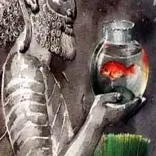

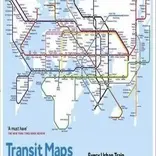



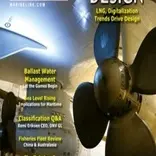
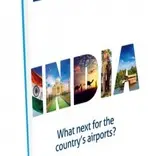


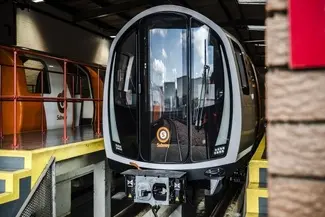
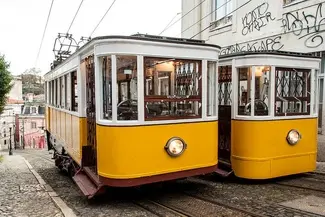
![AIRBUS A380 [MORE THAN 600 PASSENGER’S CAPACITY PLANE]](https://cdn.tinn.ir/thumbnail/4jCp4EQvCU0b/IjHVrSYQrIAqIzXuTzADR7qLYX4idQT4nfq__26E5SCUPLMqfhWkWajvuO9Wfq1ql1TjV4dhkrHliNQU82kMpo2NNftT_NGEwHc9KXtN_rk731bmifa2IQ,,/airbus-a380-structure1.jpg)

Send Comment